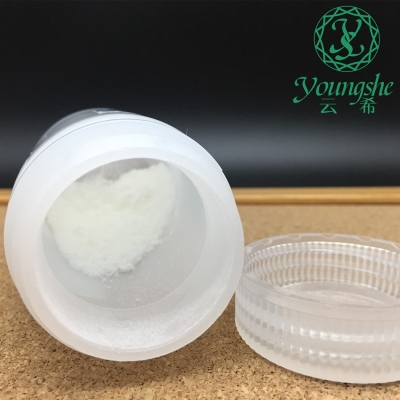-
Categories
-
Pharmaceutical Intermediates
-
Active Pharmaceutical Ingredients
-
Food Additives
- Industrial Coatings
- Agrochemicals
- Dyes and Pigments
- Surfactant
- Flavors and Fragrances
- Chemical Reagents
- Catalyst and Auxiliary
- Natural Products
- Inorganic Chemistry
-
Organic Chemistry
-
Biochemical Engineering
- Analytical Chemistry
- Cosmetic Ingredient
-
Pharmaceutical Intermediates
Promotion
ECHEMI Mall
Wholesale
Weekly Price
Exhibition
News
-
Trade Service
Yimaitong compiles and arranges, please do not reprint
without authorization.
without authorization.
Introduction: Insulin resistance in the brain – a new target for obesity and diabetes treatment?
Insulin resistance (IR) is the fundamental pathophysiological mechanism of type 2 diabetes, and it is also the common soil
for many metabolic disorders such as cardiovascular disease and fatty liver.
Studies have found that IR is not only found in peripheral muscle tissues such as muscle and fat, but also in
the brain.
If IR occurs in some areas of the brain, it will not be able to respond correctly to insulin, which in turn will negatively affect the "regulation of metabolism and eating behavior in the body", such as leading to increased appetite and weight gain
.
A recent study showed that exercise for as little as 8 weeks in overweight/obese adults can help restore the brain's insulin sensitivity, and researchers say that interventions targeting "brain insulin resistance" may be a new target
for future obesity and diabetes treatment 。 The study, conducted by researchers from DZD, Tübingen and Helmholtz Munich, was published in the journal JCI Insight (Region 1, IF: 9.
484
) under the title "Exercise Can Restore Cerebral Insulin Sensitivity in Sedentary Overweight/Obese Adults".
After 8 weeks of exercise, the insulin sensitivity of the brain improved significantly
A total of 14 women and 7 men
were included in the study.
Participants aged 21 to 59 years, with a body mass index between 27.
5 and 45.
5 kg/m^2, underwent supervised aerobic exercise
for 8 weeks.
Functional magnetic resonance imaging (MRI) was used to assess the insulin sensitivity
of the subject's brain before and after the test.
The results showed that after 8 weeks of exercise, the sensitivity of the overweight/obese subjects to insulin improved significantly, to a level
similar to that of a healthy weight.
Figure 1 Exercise improves brain insulin sensitivity (putamen)
Figure 2 Exercise improves brain insulin sensitivity (right hippocampus)
The restoration of insulin sensitivity in the brain helps to improve cognition, reduce appetite and reduce visceral fat
Studies have found that improved insulin sensitivity in the brain is associated
with increased mitochondrial respiratory function in skeletal muscle, decreased visceral fat and hunger, and improved cognitive performance.
Further analysis showed that improvements in insulin sensitivity in the brain led to additional benefits, such as reduced hunger, improved body fat distribution, and reduced visceral fat
.
Dr Stephanie Kulmann, from the Helmholtz Institute for Diabetes Research and Metabolic Diseases (IDM) at the University of Tübingen, said: "Exercise interventions increase activity in insulin-stimulated areas of the brain that are responsible for the perception of hunger and satiety, as well as the interaction
of motivation, reward, emotion and motor behaviour.
Increased insulin sensitivity in the brain has a positive effect on metabolism, such as reduced hunger and unhealthy visceral fat
.
”
Considering the relationship between insulin resistance and health in the brain, the researchers hypothesized that insulin resistance in the brain could become a new target for obesity and diabetes treatment?
Figure 3 After 8 weeks of exercise intervention, the increase in insulin sensitivity in the brain was associated with changes in hunger score and metabolic indexes
Brain insulin resistance - a new target for obesity and diabetes treatment?
Studies have found that 8 weeks of aerobic training can significantly improve brain insulin sensitivity, further improving the body's metabolic patterns and eating behaviors
.
What's more, the development of insulin resistance in brain regions appears to be reversible
.
The researchers say that it may be a feasible new therapeutic target - by improving the brain's insulin resistance to restore the central nervous system's regulation of metabolism and weight, thereby counteracting the adverse effects
of obesity.
Further controlled intervention studies are planned to test whether improving brain insulin sensitivity in type 2 diabetes and high-risk groups is indeed beneficial
for metabolism and cognition.
Resources:
[1] Stephanie Kullmann,Cora Weigert, Martin Heni et al.
Exercise restores brain insulin sensitivity in sedentary adults who are overweight and obese.
JCI Insight.
2022; 7(18):e161498.
https://doi.
org/10.
1172/jci.
insight.
161498.
[2] style="white-space: normal;">
Disclaimer: This platform is designed to deliver more medical information
to healthcare professionals.
The content published on this platform cannot replace professional medical guidance in any way, nor should it be regarded as diagnosis and treatment advice
.
If such information is used for purposes other than understanding medical information, this platform does not assume relevant responsibilities
.
The content published by this platform does not mean that it agrees with its description and views
.
If copyright issues are involved, please contact us and we will deal with
it as soon as possible.







